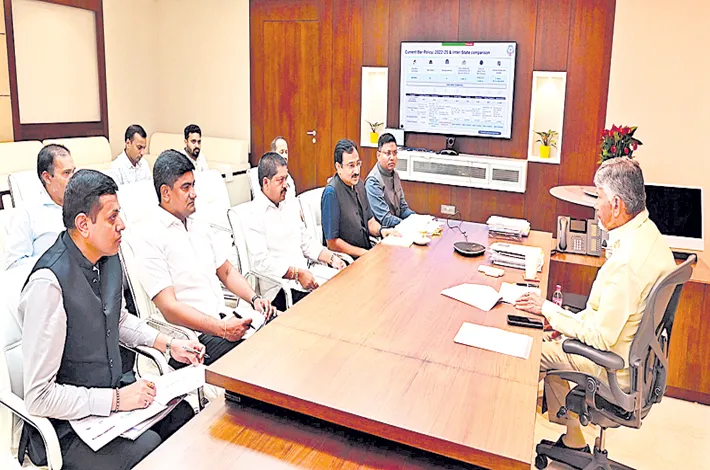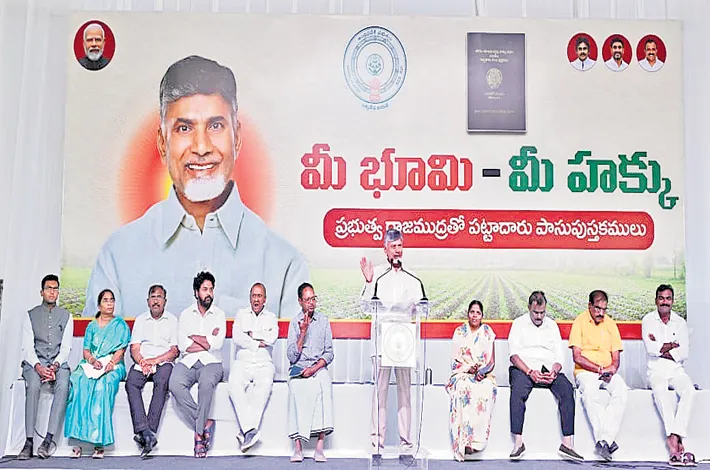New Bar Policy in AP from Sept 1
05-08-2025 12:00:00 AM

Metro India News | AMARAVATI
Andhra Pradesh Chief Minister N. Chandrababu Naidu has made it clear that the state's new bar policy, coming into effect from September 1, will prioritize public health over revenue generation. During a review meeting on the Excise Department held at the Secretariat on Monday, the Chief Minister stressed that liquor policy should not be viewed solely as a means of earning income but as a tool to safeguard the health and welfare of citizens.
“Unlike other states that focus on revenue through liquor sales, our approach is centered on protecting public health. We must avoid scenarios where alcohol consumption destroys poor families and their homes,” Chandrababu said. He pointed out that adulterated liquor under the previous government had ruined lakhs of households and emphasized the need for a responsible, health-conscious policy.
The new bar policy is being shaped based on recommendations submitted by a Cabinet sub-committee. The Chief Minister confirmed that the state currently has 840 bars, and under the revised policy, bar licenses will be granted through a lottery system. The license fee structure will vary depending on the population size of the area. Rs.35 lakh annually in areas with population under 50,000, Rs.55 lakh in areas with population up to 5 lakh, and Rs.75 lakh in areas with population above 5 lakh.
The Cabinet panel has projected that the government could earn around Rs.700 crore from application and license fees. A key condition being introduced is that each bar location must receive a minimum of four applications. Significantly, the Chief Minister also directed that 10% of bar licenses be reserved for entrepreneurs from the SC communities, extending the social equity principles already applied in liquor retail outlets.
Officials informed the CM that liquor sales in Andhra Pradesh have surged in border areas due to affordable pricing, availability of quality brands, and smoother access when compared to neighboring states. Earlier, due to high prices and lack of good brands in AP, consumers used to cross borders to buy alcohol. However, this trend has now reversed.








